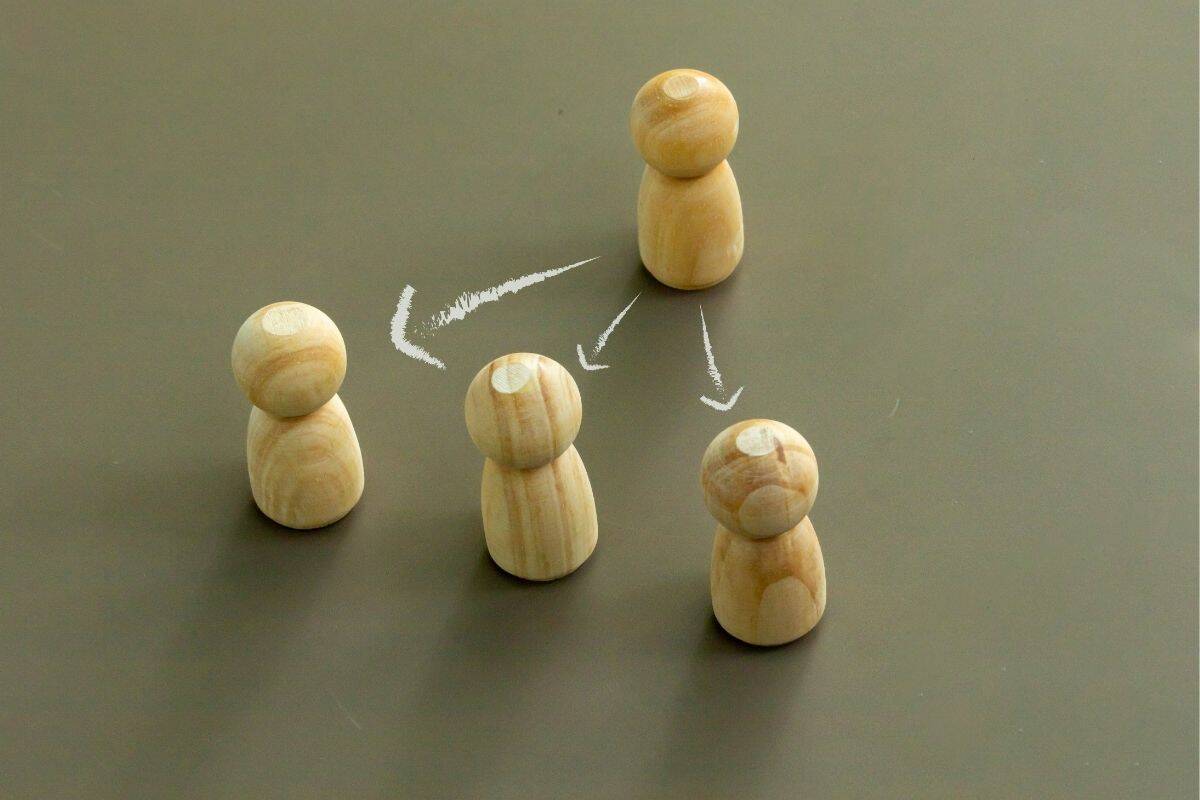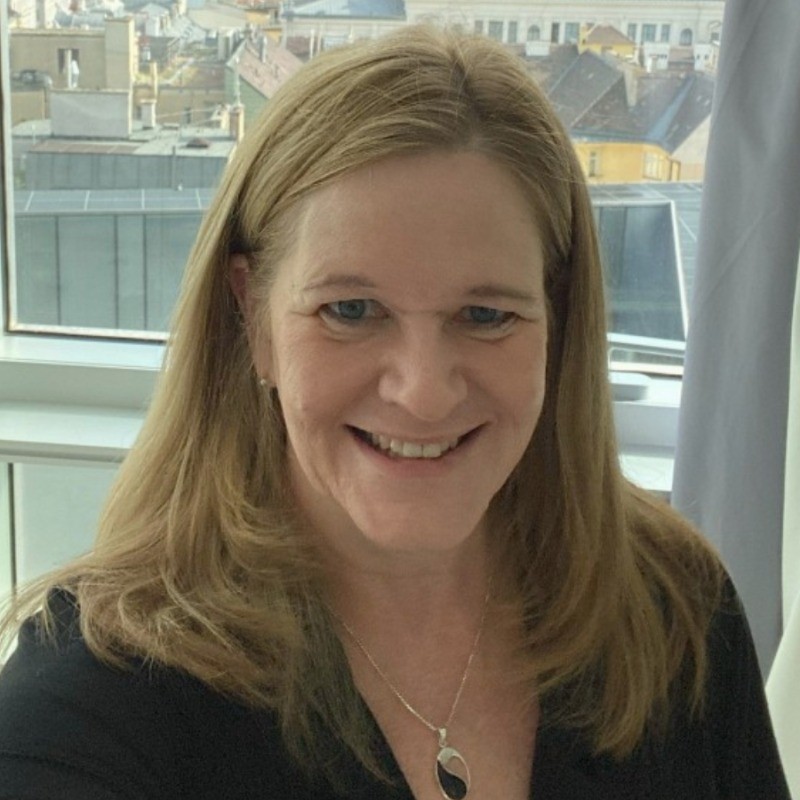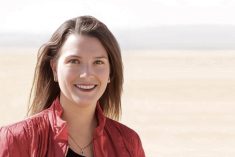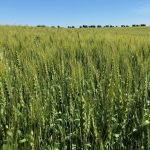What do young women think about the male-dominated ag industry that they are about to enter? I had been asking myself this question, and I wanted to find out, so I talked to a selection of female ag students. What did I hear?
Without exception, these young women all wanted to know why I was asking such an outdated question! It’s true the shift in ag’s gender balance is far from over, but still, Statistics Canada reported in 2019 that students enrolled in bachelor degrees or equivalent in the area of agriculture, natural resources and conservation were 63 percent female. These newly educated women will have a big impact on all aspects of the industry in the years to come.
But what will that change look like?
Read Also

Executive decisions: what and when to delegate on the farm
Consider the end state you’re working to achieve on your farm when deciding what tasks to delegate, when to do so and on whom, farm management advisors recommend.
Who’s running the board?
When researchers at the University of Regina looked at the current state of women in ag for a recent report, they found that of 65 national and provincial agricultural associations, only 12 per cent had a woman as board chair or president. Fewer than one in five of these groups had a woman on their executive committee.
This matches what I’ve seen at commodity group meetings. But the world won’t stay this way for long.
- Read more: A question for women in 2022
Women like Josie Huber are sure to be running these kinds of organizations in the future. Huber grew up on a farm near Wilkie, Saskatchewan, and now she’s a student at the College of Agriculture and Bioresources at the University of Saskatchewan. She’s also the president of the Agriculture Students Association (ASA).
When I asked Huber about being a woman in the agriculture college, she seemed a little confused that I thought it might be an issue.
It hadn’t occurred to Huber that being a woman would be a disadvantage when she ran for ASA president. This was partly because she’s not the first female ASA president (though she is the first since 2016), but mainly because she doesn’t think it matters. “There’s no expectation that a man should be leading things,” she says. “It’s just a matter of ‘Are you qualified?’”
Huber had the same experience interviewing for summer jobs in the ag industry. She didn’t think interviewers were concerned about her gender; she felt the criteria was “Are you a good person to fill this position?” There were women on the decision panels for all of her summer job interviews, and many of her co-workers and managers were female.
She did admit to having a few minor hiccups when giving agronomy advice to older (male) farmers. “I would tell them what I was seeing, and they would be hesitant to believe me. I’d bring the supervisor out, so the supervisor could tell them the same thing.” This tactic didn’t always work when she had a female supervisor. “Some of them still want to hear a man’s voice.”
Huber was quick to explain that this attitude came almost exclusively from older farmers. “This younger generation is more open to the change,” she says. “It’s not unusual to have different genders or different races, all mixed together.” Huber is grateful that women have opportunities these days that they might have had to work harder for in the past. “Now it’s the norm, because they fought for us,” she says.
On the family farm, Huber’s mother was actively involved, and she too was encouraged to join in. She was brought up to believe there were no hurdles to doing whatever she wanted to do.
One day, Huber may go back to the farm. But for now, she’s focused on education, probably a masters degree in agricultural economics. If she chooses, don’t be surprised to see her chairing board meetings too.
Who’s managing the farm?
Alice Rooke has better things to do than discuss whether or not she’s a farmer. She’s too busy farming.
While women are making great strides in some areas of the industry, things tend to move a little more slowly where the boots hit the ground — on the farm. According to that University of Regina report, women make up only 25 per cent of Canadian farm operators. This statistic is probably unreliable. Many women on farms struggle with calling themselves “farmers.” This winter, a Twitter debate about whether women like me are “farm wives” or “farmers” took up an unreasonable amount of my cell phone data. People had strong opinions on sides of the issue I’d never even thought of. Some women said their spouses were “farm husbands.”

Some of the confusion over who gets to call themselves a farmer may be the result of an old Statistics Canada policy — before 1991 every farm could have only one designated operator, which meant most farm operations likely just defaulted to the person running the tractor. These days, it seems fair to assume that it takes more than one person to run a farm, and that all kinds of jobs fit within the definition of what a farmer does.
- Read more: Different goals for women in ag
Personally, I’m not sure if I’m a farmer. I’m sure our accountant sees me as an equal partner. I do the bookkeeping, and put in my fair share of time running the combine. I also do a lot of the things that aren’t technically “farming” — running for parts, making dinner, calling the chemical dealer to pay the bill. But when it’s time to change the heavy sprayer tires, I suddenly have an article to write.
Alice Rooke, meanwhile, is a student at the University of Manitoba’s Faculty of Agricultural and Food Sciences. While other students were disappointed when the U of M switched to online learning last fall, Rooke was happy to have a chance to go back to the farm near Alexander, Man., for calving season. (Though she does admit it’s been challenging to keep the rest of her family off the internet while she’s watching lectures, so she has enough bandwidth for a decent signal.)
Rooke was raised on a farm in England with two farming parents. “My mother was a farmer’s wife, but my dad is also a farmer’s husband,” she says. “My parents farm 50-50. That’s how I’ve been raised.”
When her family immigrated, they came as a family to build a new farm. Rooke was only 13 but, she says, “I’ve always known I would definitely be in agriculture.” While she’s finishing an education and not sure exactly on what path it will take her, her goal is still to wind up on the farm. “I wanted to go farming. That’s still my plan.”
The Rookes have a mixed farm with 400 calving cows, including 100 purebred red Angus. They also seed 6,000 acres and offer custom operations ranging from seeding to forage harvesting and combining. Generally, Alice Rooke is more interested in cattle production than the grain side of the operation, but she does work on both. “I was raised in a very hands-on environment,” she says. “I didn’t just help with the nice things.”
When thinking about her work on the farm, it hasn’t occurred to Rooke that being a woman was a disadvantage. Like Huber, she seemed surprised I was asking. “I think there is equal opportunity in the ag industry for young men and young women alike.”
She does admit to experiencing a hurdle similar to the one mentioned by Huber. When she’s working as a sales agronomist in the summer, she says, “the older generation (of men) will take a while to warm up to you.” Instead of sexism, Rooke chalks a lot of this up to her still being young. But if it is sexism, she’s not worried. “If someone from the older generation has a problem with me being their agronomist, it’s not my problem,” she says.
Rooke says the companies she’s worked for have as many female agronomists as male. “I’ve never sat waiting for a job interview and felt that I didn’t have as much of a chance as the next guy.”
Alice Rooke believes women are much more accepted in agriculture now than ever before. “It’s a case of thinking you’re unequal,” she says. “Really, there’s a lot of chairs at this table.” Sometimes, she says, women will wait to be invited, or have the idea that they aren’t able to do the things men do.
For her part, she doesn’t wait. “You have a place there. You deserve to be in the industry,” she says.
As more women work in agriculture, young women have fewer reasons to think they can’t do anything they want. “I have lots of role models in the industry,” Rooke says. “Female cattle farmers, veterinarians, agronomists, powerful women that wouldn’t think twice about what they do. They know they have every bit of ability and knowledge and right to be doing what they do.” While she realizes things were different in the past, these days, she says, “I don’t think that there is inequality in our industry. If you feel that there’s a glass ceiling, you don’t have to acknowledge it, or think you don’t deserve something. If you choose to ignore it, it doesn’t exist.”
Who’s maintaining the tractor?
Even though she’s taken an active role on the farm, Alice Rooke admits that repairing machinery isn’t her passion. It’s not unusual to see more men than women in this area of agriculture. The Regina report also notes that “Gendered divisions of labour remain strong in industrialized ag settings.” A completely unscientific assessment of the farms in my neighbourhood reveals that this is probably still true. Not too many women are interested in fixing the swather.
- Read more: Women and men in conversation, and work
But there will be more in the future, and one of them will be Ellen Dahlman. Dahlman is finishing up her Agricultural Equipment Technician (AET) apprenticeship technical training at Saskatchewan Polytechnic in Saskatoon. Once she’s passed the journeyperson certification exam, she’ll go back to work at the New Holland dealership at Assiniboia.

Dahlman always liked helping with harvest and with the cattle on her family’s farm near Mankota, Sask. When she first left home, she studied to become a physiotherapist, but found she wasn’t enjoying it. Moving from fixing people to fixing machinery was a big change. “My friends thought I was crazy,” she says. And Dahlman is definitely on the final frontier for women. She’s been the only woman in her classes at Sask Polytech. But she’s pleased with how it has turned out.
Dahlman likes working at the dealership, and, although she’s the only female mechanic on the job, she says she doesn’t have any trouble. “The guys that I work with treat me well,” she says. “They give me a hand if I need a hand. If they need a hand, I give them a hand. I’m kind of small so I fit in the spaces where they can’t.” As for lifting heavy things, she says “It’s actually not too bad. For the most part you make it work.” Sometimes, Dahlman can get around heavy lifting by making her own specific tools to make the jobs easier.
So far, we haven’t had a female mechanic on our farm. I asked Dahlman if farmers were surprised to see a small woman, on her own, driving the company service truck into their yard. “Most of the encounters I’ve had have been good,” she says. “You’ll get the odd farmer lingering, making sure you’re doing the job right.” But Dahlman can’t be sure this is related to gender. (Full disclosure: I’ve seen my husband do this when men come to fix his machinery. He thinks it’s a good chance to learn something.) “I’m more likely to get comments about my size,” Dahlman says, “not comments about my not being able to mentally do the job.”
Of course, it isn’t only the machinery that’s broken down by the time she arrives. As the person who shows up on the farm when things are at a standstill and farmers are under pressure to get back into the field, Dahlman sees farmers at their worst. “It’s a bit intimidating, but I don’t want to tell them that,” she says, laughing.
Don’t get left behind
Like Huber and Rooke, Dahlman thought I was a little out of touch, asking these questions. Of course she can do her job. “I don’t want to be a poster girl. You don’t want to support that stigma by making a big deal of it. Just try to make it seem like a normal thing, and it will end up being normal.”
None of these three women are worried about not being accepted by the older generation of men in agriculture. Instead, they all came across as believing sexism is a relic of the past, something that will change as the next generation moves forward — a generation that’s been raised seeing competent women in positions of power throughout the industry.
So if you’re one of those people who’s still not sure women belong at the ag industry table, you’d better be ready to keep your opinion to yourself. Unless you want to be dismissed by the people making more and more decisions in this industry.
















